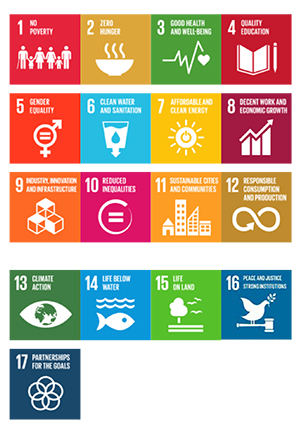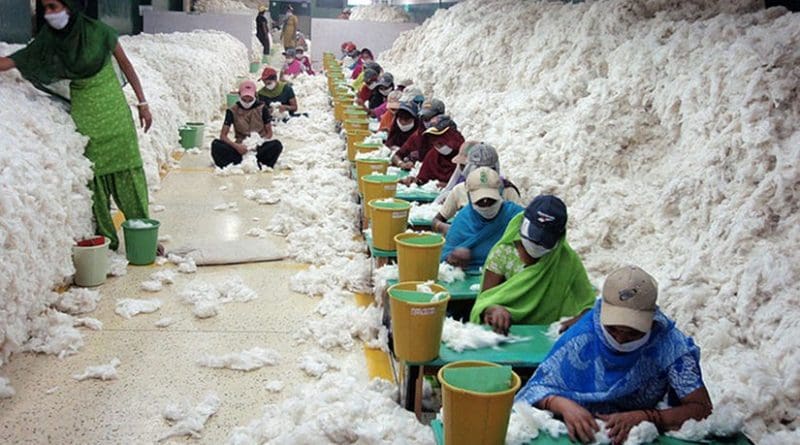Pacific Trade Deal Needs To Harmonize With Sustainable Development Goals – Analysis
Transpacific Partnership boosts UN Sustainable Development Goals in some ways and undermines them in others.
By Shuaihua Wallace Cheng*
Major deals between developed and developing economies are not commonplace: On September 25, the 193 members of the United Nations announced a new global action plan for achieving Sustainable Development Goals including no poverty in any form by 2030. A week later, the Transpacific Trade Partnership, or TPP, concluded negotiations that form the largest regional trade agreement in history, one representing nearly 40 percent of global GDP.
It is pertinent to ask, to what extent will the TPP bolster or undercut the SDGs? The answer – it’s a mixed bag.
The Pacific trade deal presents four major strengths that contribute to implementation of the SDGs:
First, with more than 18,000 tariff lines reduced to zero, according to a fact sheet provided by the Office of US Trade Representative, 12 countries will merge into a more integrated market. This will significantly lower transaction costs for firms to trade among the TPP members, boosting economic growth and creating jobs. Liberalization of some critical sectors in difficult markets – such as Japan’s agricultural products, including rice, wheat and beef, or Canada’s dairy products – may pave the way for these countries to open these sectors in future negotiations with other countries.
Second, on environmental protection, the TPP agreement should be given credit for having a higher level of commitment than previous trade agreements. The parties promise to cut the most harmful fishery subsidies and prohibit illicit trade activities from illegal logging and wildlife trafficking – great steps toward supporting SDG 14, protecting life below the water, and SDG 15 protecting life on land.
Third, the TPP pact has one chapter dedicated to labor rights to prevent the race to the bottom. Its members make an explicit statement supporting international core labor standards, from the freedom to form unions and bargain collectively to prohibitions against child labor and forced labor, and protection against employment discrimination. Although these standards are only minimum requirements to all signatory countries under the International Labour Organization, this is the first time they will be incorporated in a large regional trade agreement with “teeth,” namely, possible trade sanctions against producers who violate core standards.
Fourth, this agreement will make some positive contributions to other sustainable development goals, by emphasizing good governance, anti-corruption measures and codes of conduct with high standards. TPP also has a chapter on development and capacity building. These are in line with the SDG 16 addressing justice and good governance and SDG 17 on effective partnership.
However, the TPP agreement will have negative impact on poor countries and people in vulnerable situations, while the SDGs obligate all countries to carry out an effective partnership to “work in a spirit of global solidarity, in particular solidarity with the poorest and with people in vulnerable situations.”
Citizens of a poor country outside the negotiations will have no say at all on how TPP will affect their interests. For example, US subsidies to cotton farmers have been the largest concern for cotton farmers in poor countries. According to a research by Oxfam, US cotton farmers receive three times more in subsidies than the entire USAID budget for Africa’s 500 million people. Trade-distorting cotton subsidies have pushed down the global price of cotton, costing Benin, Burkina Faso, Chad and Mali more than US $100 million a year.
Even for Vietnam, the poorest developing country within the TPP, its export potentials in labor-intensive sectors such as textile and clothing will be compromised by a restrictive “yarn forward” rule of origin insisted on by the US – if Vietnamese clothing exporters would like to enjoy the TPP market’s zero tariff, all components, from yarn to fabric to final item, must be produced by one of the members to the agreement. Note that the US is the most competitive producer of yarn, thread and fabric among the TPP countries.

In another area, the agreement risks going in an opposite direction against SDG 3, which explicitly calls for the provision of “access to affordable essential medicines and vaccines, in accordance with the Doha Declaration on the TRIPS Agreement and Public Health, which affirms the right of developing countries to use to the full the provisions in the Agreement on Trade-Related Aspects of Intellectual Property Rights regarding flexibilities to protect public health, and, in particular, provide access to medicines for all.” Many professionals and civil society organizations argue that the agreement will endanger access to medicine for people needing lifesaving treatments, particularly in the poorest countries. Although there is not much information on what the final compromise between the US and Australia really means, the agreement obviously adds new obligations to some TPP members such as Peru, Vietnam, Malaysia and Mexico. According to Doctors Without Borders, the TPP deal will drive up costs for some of the most expensive drugs on the market in the poorest countries by delaying cheaper, generic versions. Investors’ rights should be protected to encourage innovation, but in the areas critical to the public interest, US negotiators should not have catered to the business lobby alone.
This acquiescence to the demands of business interests likewise led to US cherry-picking practices in the Doha Development Round negotiations of the World Trade Organization. The US negotiators have preliminarily secured the trade facilitation agreement, the expansion of information technology agreement and possible liberalization of environmental goods under the WTO frameworks, for which their business groups lobbied. However, the US leaves behind critical issues for developing countries, such as trade-distorting domestic farm subsidies, anti-dumping rules and tariff escalation of some products.
All of this is legal, even if detrimental.
The challenge is that in a new context of pursuing the Sustainable Development Goals over the next 15 years, the world needs leadership. As a nation promoting universal values of freedom, democracy and equality, the United States is in a good position to lead. US political leaders should not merely follow US business interests, but stand for these higher values.
In this TPP agreement, the US has made positive steps in promoting trade for growth, strengthening environmental and labor protections in international commerce, and advancing anti-corruption principles. However, the country fails to support sustainable development by refusing to discontinue subsidies harmful to poorest countries outside the TPP, by insisting on the yarn-forward rule of origin and pushing unbalanced intellectual property protections that will likely cost lives.
If President Barack Obama would like to be remembered as a great global leader rather than a follower of business interests, he may need a bigger legacy than TPP.
There is a chance at the upcoming December WTO Ministerial Meeting in Nairobi. The president should ask his trade officials to work more constructively with trading partners and deliver a more development-friendly package than the TPP. The United States should abide by the WTO’s Hong Kong Declaration in 2005 to provide duty- and quota-free market access on a lasting basis for all products originating from the least developed countries, including Afghanistan, Bangladesh, Cambodia, and Nepal, allowing them equal trading terms with TPP member Vietnam and providing them with a more flexible rule of origin.
The United States should also take the lead, urging the European Union and China to also act, to eliminate cotton subsidies and save the livelihoods of 10 million African farmers. Finally, the United States should adjust its position on data exclusivity protections of new pharmaceutical products by offering exceptions for developing countries so as to ensure poorest patients’ access to essential medicines. These high standards are genuine and moral.
*Shuaihua Wallace Cheng, PhD, is the managing director for China at the International Centre for Trade and Sustainable Development, and a Yale World Fellow in 2015. The opinions expressed are his own.

